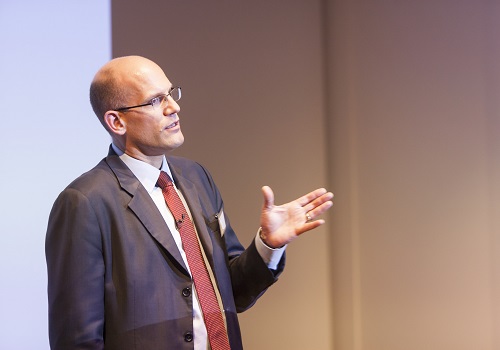How can charities and social enterprises get the best out of their people to drive the change they’re seeking? Mark Norbury, chief executive of UnLtd, the foundation for social entrepreneurs, shares knowledge borne from recent experience
When I arrived at UnLtd just over a year ago, I found an organisation brimming full of talent. Any given team member was values-driven, emotionally intelligent, smart, productive and thoughtful. That has generally been my experience in the social sector, but the UnLtd team seemed a notch up.
This human factor is critical to the success of any organisation, but for one focused on developing outstanding leaders of social change like UnLtd, it’s an absolute necessity.
Despite this strong foundation, we didn’t seem to be firing on all cylinders collectively. And worse, we were losing our talented folk at a surprising rate.
So with great support from both Board and team, we set about figuring out how we could better unleash the talent in the organisation. We focused on four factors which I think are paramount to organisations seeking to drive long term social change through their people:
1. Make people the top priority
This is of course common sense. But is sometimes undermined by structural factors – in our case cyclical funding driving resourcing decisions, or organisational culture – for us an unwillingness to say no to potential opportunities.
So the first thing we did is listen to our people. We sought everyone’s views about UnLtd as a place to work. With a partner, we ran a comprehensive, anonymised staff survey. We had a fantastic response rate (91%). This gave us a robust mandate to make change happen based on the findings of the survey.
2. Distinguish between people development and HR
The second thing we did was to create a new Head of People and Organisational Development role reporting to me as Chief Exec. This new role was exclusively focused on culture, values, learning and development, and progression.
Together we developed a strategy to address the key issues emerging out of our survey. We presented it at our annual team gathering and got good buy-in.
It’s not just staff who need to commit to this – but our trustees too. Our Chair and Board were really supportive throughout. This included defining that there would be a Board Committee with responsibility for people matters (the Nominations, Remuneration and Governance Committee for us).
3. Establish a common purpose
Obvious as it may sound, having 70 purpose-driven people is not the same as having 70 people driven by a shared purpose.
For us, this meant translating our mission and broad strategic direction into a concrete business plan and a meaningful performance framework.
Perhaps the most important thing to clarify for us was what we were not going to do.
I remember our managers showing me a list of 17 funding programmes and an activity map which must have had over 60 priorities. We focused down to three areas of focus and three streams of delivery. We agreed how we would consolidate, exit or handover activities that we were no longer pursuing.
Even so, since then we have had to constantly push ourselves to be clear on what is ‘in’, what is ‘out’ and why. It’s not always easy, and we do find ourselves tempted to add exciting opportunities, or broaden definitions. Sometimes that will be fine, and sometimes we’ll still say ‘no’. But now we have a way of having more robust discussions, making judgement calls and sticking to them.
The next stage was to create a performance framework which was explicitly structured around this business plan and could bridge into organisational, team and individual goals. This means each person or department can map their plans and performance to the business plan and understand how their role contributes to our shared purpose.
4. Be brave and hold the course
A year on, we have invested in learning and development significantly to become better people managers and supporters of social entrepreneurs. We have introduced salary changes based on robust benchmarks to recognise our team’s value appropriately. We have shifted from 35% of staff on fixed term contracts to 98% on permanent contracts to boost job security.
But change takes time, and creates sometimes unwelcome disruption. There is a price to pay for that. I have lost trusted allies and experienced plenty of that wonderful human trait – in those around me but also in myself – of discounting all the positive and amplifying small negatives into epic proportions.
For those at the top it can make the work lonely, frustrating and difficult. Self-doubt looms large. But then I check myself. I go back to the evidence of need, and the strong, positive reasons for all this. I treasure the gems of positive feedback. Most of all I anchor on the tangible, visible shift in partnerships, funding, performance and impact.
And I know that this is “long dark night of the soul” for this change process. So we will hold true to what we have been doing and why.
After all, it’s what the social entrepreneurs we support do all the time.
Mark Norbury is chief executive of UnLtd, the leading provider of support to social entrepreneurs in the UK. offering the largest such network in the world.
This post is part of a talent project led by the Global Social Entrepreneurship Network (GSEN, founded by UnLtd) and supported by the BMW Foundation Herbert Quandt. The project aims to shed light on challenges and solutions related to the attraction, development and retention of talent within entrepreneur support organisations. Follow along with #talentsummer


